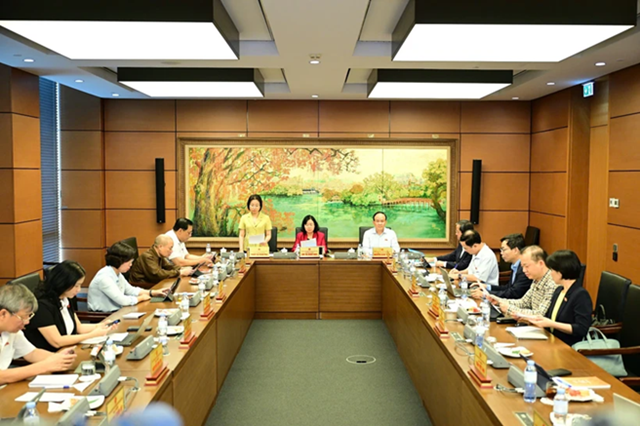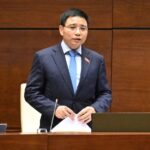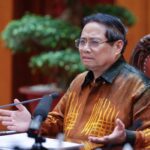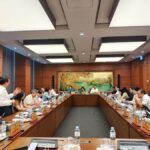
Hanoi National Assembly delegates discuss law projects in groups. (Photo: Xuan Quang/Vietnam+)
|
According to the agenda of the 9th session of the 15th National Assembly, on Friday morning (May 23), the National Assembly discussed in groups the supplementary assessment of the implementation results of the socio-economic development plan and the state budget in 2024; the situation of implementing the socio-economic development plan and the state budget in the first months of 2025.
Also in the morning, the National Assembly discussed in groups the approval of the state budget settlement for 2023; supplementary budget for regular expenditure (from foreign non-refundable aid) in 2025; the continuation of applying a number of specific mechanisms and policies that have been allowed by the National Assembly to be implemented in some localities after the reorganization of the apparatus and expansion of administrative boundaries in accordance with the Party and State’s guidelines; the practice of thrift and anti-waste in 2024; and the results of implementing the national objective program on gender equality in 2024.
In the afternoon, the National Assembly discussed in the hall about the draft Law amending and supplementing a number of articles of the Law on Bidding; Investment in the form of Public-Private Partnership (PPP); Customs Law; Law on Export and Import Taxes; Investment Law; Public Investment Law; and Law on Management and Use of Public Assets.
Quang – Hanh
– 05:15 23/05/2025
“Prime Minister: Developing a Digital Currency Strategy Tailored to Vietnam’s Needs”
“The development of an international financial center is key to unlocking the country’s growth potential, according to the Head of Government. By establishing a robust financial hub, we can attract global investment, foster innovation, and create a thriving economy that benefits all.”
Implementing an “Export Incentive” Policy for Businesses
To stimulate economic growth and achieve development targets, Delegate Hoàng Văn Cường suggests implementing aggressive measures to support export businesses. He proposes a “reward-based export policy”, which involves offering incentives and removing legal obstacles faced by stagnant real estate projects. Additionally, encouraging private investment and expediting a mechanism for placing orders with large enterprises for state investment tasks are key aspects of this strategy.





















